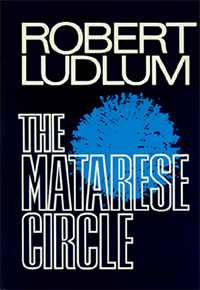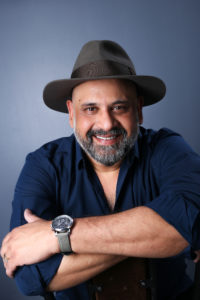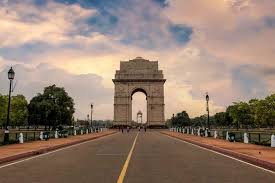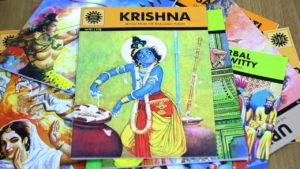If you think you are above the law, there is only fear of god!
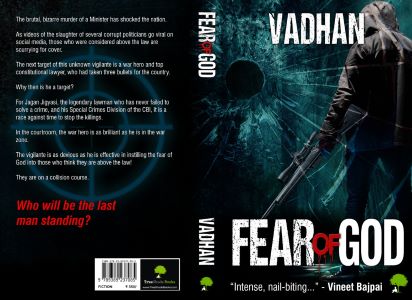
Saurabh Tankha
When a corporate lawyer pens a crime thriller, you expect it to have courtroom drama which the third novel of Bommadevara Sai Chandravadhan, who writes under the pen name of Vadhan, has. But then Fear of God (TreeShade Books; Rs 350) reiterates the key questions in the context of present times — what if fighting for good can be morally right but legally wrong? What if taking the right decision is not politically correct? What if the idealistic villain is actually the hero we need?
In an email interview with lifeandmore.in, Vadhan tells us that the story of Fear of God weaves law, corruption, vigilantism and courtroom drama that follows the three central characters who are looking to achieve the same thing but through different means.
You started writing at 12. How did you go about penning your first work?
When I was 12, India didn’t have computers. I wrote on a long notebook. I wrote as much as I could. I could not quite complete the story at that time. I did, much later. It is the book I published in 2016, called Agniputr. It is based on a recurring nightmare I had as a child. It is about a place in a dream which I know well but may have never seen in my life. It was a strange terrifying nightmare.
Tell us more about this interest before even hitting the teens.
I started with a liking for poetry. I wrote books and books of poetry. Mostly about nature and on theological stuff. I pictured Lord Krishna as a boy sitting on a branch playing his lute and wrote a verse on it, etc. Then, poems were not enough. The thirst to tell a story increased. That’s when I started writing stories. I did not know of the concept of short stories or novels at that time. I just wanted to write. Get it out. The love for story telling died somewhere in between. It faded into the shadows as harsher realities of life surfaced. It was much later in life that I suddenly realized I wanted to write. Thus, I started with my first book, Shatru. It is a prequel to a yet unpublished fantasy fiction series. The second book was Agniputr and the third is of course, Fear of God. In between, I have written my dream fantasy series (at least two books) and an action thriller. There are two other manuscripts half-written.
Was there someone in the family who was already into writing, someone who proved to be an inspiration?
Robert Ludlum was my inspiration. His Matarese Circle was my first book outside of Enid Blyton and Hardy Boys. I was enthralled by the author’s ability to hold me down to my seat till the book ended. The endeavour is to write like him. Lee Child is an inspiration. His life-story and the chance he took with the Jack Reacher books should be every writer’s inspiration. Today his books are sold every nine seconds the world over. But when he started to write, he had lost a job and moved to a different continent. In my opinion his love to tell a story defeated even fate.
What made a corporate lawyer decide on writing a crime thriller?
The writer in me was forced to become a lawyer and that’s the truth. In a way, one complements the other because there is creativity in writing and consulting.
How did you go about weaving the plot?
Fear of God came about thanks to the reckless driving by some in the National Capital Region. It instigated a question — why do people not respect or fear the law in India? Is it because there is corruption everywhere in one form or another? Is it because in one way or another, even the appellate forums of this country are compromised? Is it because people are indoctrinated with the thought that disobeying the law is a sign of defiance or way of life? Does it help people think that somehow they are above the law? Then it struck me that if you obey the law you are protected by it. If you break the law, you are answerable to it. If you think you are above the law, there is only fear of god!
Do things ease out after you have had written two novels and decide on the third one?
There is no let up. But I have an amazing literary agent in Suhail Mathur. I am in safe hands. But honestly, there is no let up. Us authors are not like movie stars. We have to do the hard work and then market and sell our work. We are placed in a weird place where we are master of the vessel and every sailor who is at the rows, all at the same time. There is definitely recognition. That much is there but it is toil of love until things pan out for you.
What makes you say that an author’s job is lonely?
It is lonely in a very practical and real way. At least for me. It is inspired by the things an author observes. The research consists of mounds of browsing, library scouting, and reading, watching and observing people. No one else can do all that. Only the author can, because the ideas have to come from him. And mounds of notes and missives that replace hazy memory. Only an author can write a book. Unless it is ghost writing, which is like a bald man wearing a wig. (Considering I have a tonsured head, the example appeals to me). The editing is harrowing. The cut down on the stuff an author put there in the first place is heart wrenching but it has to be done. The pitching, the publishing deals and finally the marketing. There are no sponsors, no investors, (lots of advisors) and usually, no support. In the case of Fear of God, TreeShade has been an exemplary and refreshing departure from the usually stale publisher stance.
You are from Eluru in (Andhra Pradesh), born and brought up in Chennai (Tamil Nadu), lived in Delhi for more than a decade and now stay in Mumbai (Maharashtra). Kindly rate these four in terms of people, culture, food and social etiquette on a scale of 1 to 10 with 10 being the best.
Eluru comes first. It is where my roots are. It is really a town where everyone knows everyone else. It has a small town’s coziness and its mentality. I love Andhra food, so Eluru is at the very heart of things for me in the food sense. I haven’t been there in more than 15 years, which is a sad thing. 6/10
Chennai is where I grew up. It is my first love. I grew up with the beaches and humidity with tennis and cricket and badminton and a whole load of buddies who I love and adore. Chennai has food to die for. Of all the biryanis in the world, my favourite is the Chennai Biryani. 9/10
Delhi is where I learnt to fend for myself without any of the frills and finery I was used to down South. I had no one to fall back on. But then people came forward, I made friends, met my wife, bought myself a beautiful home. It was the most wonderful experience of my life to live close to Gurugram but surrounded by natural beauty of fields and the Sultanpur bird sanctuary. It is also the town that taught me that everyone who craps on you is not your foe and everyone who helps you get out of the crap is not your friend. It is a lasting lesson that I will carry to my dying day. Moving on, Delhi food is exemplary. Its people are fierce and independent. I love its street food. 7/10
Mumbai gave me a second lease of life late in my life. It has a beautiful heart. It is soft spoken and friendly. It is professional and loves art as much as Delhi does. In the food department, the chaat is amazing. It has a mix of Marathi, South Indian and other food. The traffic drives me up the wall. There is no way anyone can predict the start time and end time for travel in this town. But whatever said and done, you cannot help but love Mumbai. 7/10
Your ideas germinate from…
Observation. Reading. Observation. A sense of longing for justice and of course, most importantly, observation!
How different are you from other authors?
Well, Indian authors do not generally believe in creating a depth to their character. I believe that unless my character development is able to hold the interest of the reader, she/he has no connect to the story and is unable to relate to it. The little scene in Fear of God were Jigyasi likes the way his wife hums because it makes him feel safe is a way of endearing him to the people who are reading his story. They are then invested in his point of view.
What if your creative work doesn’t get good reviews (honest confession)?
I hate it. There is a lot of hard work that goes into creative work. Worse still is if it is compared to an earlier work or a movie. That really hurts because, influences apart, every thought that goes into making my book is original.
In your opinion, what is that one thing which is the most important part of a book?
Two things. Do you have a story to tell? How strongly do you think you want to tell that story? Character development. Character to me is God. The story develops only through the eyes of a character.
Is writing energising or exhausting?
It is bliss. Nirvana.
The word “creative” to you is…
Building a world that others want to experience.
What does it take to be a good storyteller?
The passion to tell a story in the best way you can.
Did any of your creative works get rejected by a publisher?
A number of publishers. A number of times. That is normal. If I had gotten selected at the first instance, I would not have had an opportunity to improve my craft.
Do book covers matter as much as the content?
Yes and no. They are like the first attraction. The infatuation factor. They draw you to the book. Their role ends there.
Favourite childhood book…
Amar Chitra Katha. Indrajal Comics. DC comics. Marvel comics. More importantly Tintin comics. Above all else, Asterix comics.
Favourite childhood author…
Don’t know the ghost writers of Hardy Boys. Robert Ludlum is an all-time favourite.
You are, at present, reading…
Elevator Pitch by Linwood Barclay.
Share something about your family…
My daughter is an amazing artist. My son is an aspiring actor. My wife is a painter and candle-maker. All of them are professionally qualified. I am the laggard!


